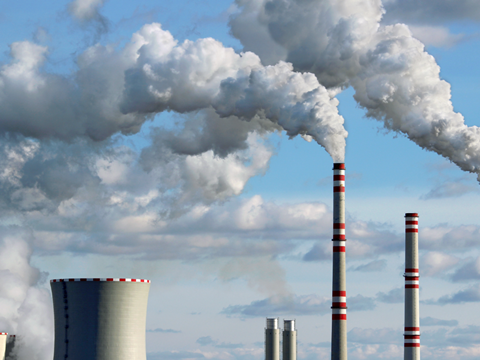
The International Court of Justice has ruled that any country that fails to tackle greenhouse gas emissions and fossil fuels is violating international law and might be required to pay reparations – amping up WWF’s call for an ambitious Global Plastics Treaty.
The Court’s advisory opinion consults international law and comes to the conclusion that failing to comply with the emission reduction commitments of the Kyoto Protocol and Paris Agreement “may constitute an internationally wrongful act.”
It argues that individual nations can be held accountable for their contribution to climate change, with “factual questions arising in the context of attribution and apportionment of responsibility” to be “resolved on a case-by-case basis.”
While it acknowledges that “climate change is caused by cumulative GHG emissions”, it adds that “it is scientifically possible to determine each State’s total contribution to global emissions, taking into account both historical and current emissions.”
The Paris Agreement’s 1.5°C threshold is recommended as the “primary temperature goal” for limiting global warming, while nationally determined contributions (i.e. climate pledges) should be “capable of making an adequate contribution to the achievement of the temperature goal.”
Developed countries are held to “additional obligations” and expected to take the lead in these reduction efforts, according to the Court.
The Charter of the United Nations also sets out a duty to cooperate with one another to meet the requirements of the United Nations Framework Convention on Climate Change.
“The Court is of the view that the principle of common but differentiated responsibilities and respective capabilities […] is a manifestation of the principle of equity and guides the interpretation of obligations under international environmental law beyond its express articulation in different treaties,” says the advisory opinion.
Among the suggested rules and measures to help states prevent environmental harm are regulatory mitigation mechanisms that facilitate “the deep, rapid and sustained reductions of GHG emissions that are necessary for the prevention of significant harm to the climate system”, as well as the acquisition and analysis of the corresponding scientific and technological information.
Human rights law also contributes to a country’s legal obligations, with president of the court Iwasawa Yuji stating that “the human right to a clean, healthy and sustainable environment is essential for the enjoyment of other human rights.”
“In the Court’s view, the well-established rule of international law that the conduct of any organ of a State must be regarded as an act of that State is applicable in the context of climate change,” a press release reads.
“Failure of a State to take the appropriate action to protect the climate system from greenhouse gas emissions – including through fossil fuel production, fossil fuel consumption, the granting of fossil fuel exploration licences or the provision of fossil fuel subsidies – may constitute an internationally wrongful act which is attributable to that State.
“The Court also emphasizes that the internationally wrongful act in question is not the emission of greenhouse gases per se, but the breach of conventional and customary obligations.”
If a country’s nationally determined contributions are deemed inaccurate, a court or tribunal could mandate that the country create a new one in line with the Paris Agreement.
The advisory opinion adds: “The duty of cessation may also require States to employ all means at their disposal to reduce their GHG emissions and take other measures in a manner, and to the extent, that ensures compliance with their obligations. Additionally, in appropriate circumstances, a responsible State could be required to offer appropriate assurances and guarantees of non-repetition.”
This might take the form of a formal apology to any parties affected, but could also mean paying compensation.
This development comes in the run-up to the sixth round of negotiations for a Global Plastics Treaty after participants failed to reach an agreement last December.
The NGO observes that negotiators are failing to conclude by consensus and argues that a formal agreement is now unlikely – but it recommends another solution.
“Countries can, and should, exercise legitimate, well-established procedural pathways, including voting on a new treaty text (notably used for the adoption of the Universal Declaration of Human Rights and UN Convention on the Law of the Sea) or forming a majority coalition of ambitious countries to adopt the treaty outside of the INC process,” it says.
“Delivering an ambitious global plastics treaty could put countries in the clear but failure to do so could now put them on the hook for international legal action, especially as plastic production is expected to account for 21-31% of the world’s carbon emission budget required to limit global heating to 1.5°C.”
Zaynab Sadan, global plastics policy lead at WWF, adds that “no consensus doesn’t have to mean deadlock. The ambitious majority must now forge their own path to a meaningful treaty through voting or forming a majority coalition.
“By rejecting bad-faith obstruction and leveraging their strength in numbers, the ambitious majority can build a treaty that helps protect people now and for generations to come. They have the support and they have the tools. Now they need to deliver.”
If you liked this story, you might also enjoy:
The ultimate guide to the Packaging and Packaging Waste Regulation in 2025
How are the top brands progressing on packaging sustainability?
Everything you need to know about global packaging sustainability regulation in 2025
The key to increasing the use of reusable packaging in supermarkets














No comments yet